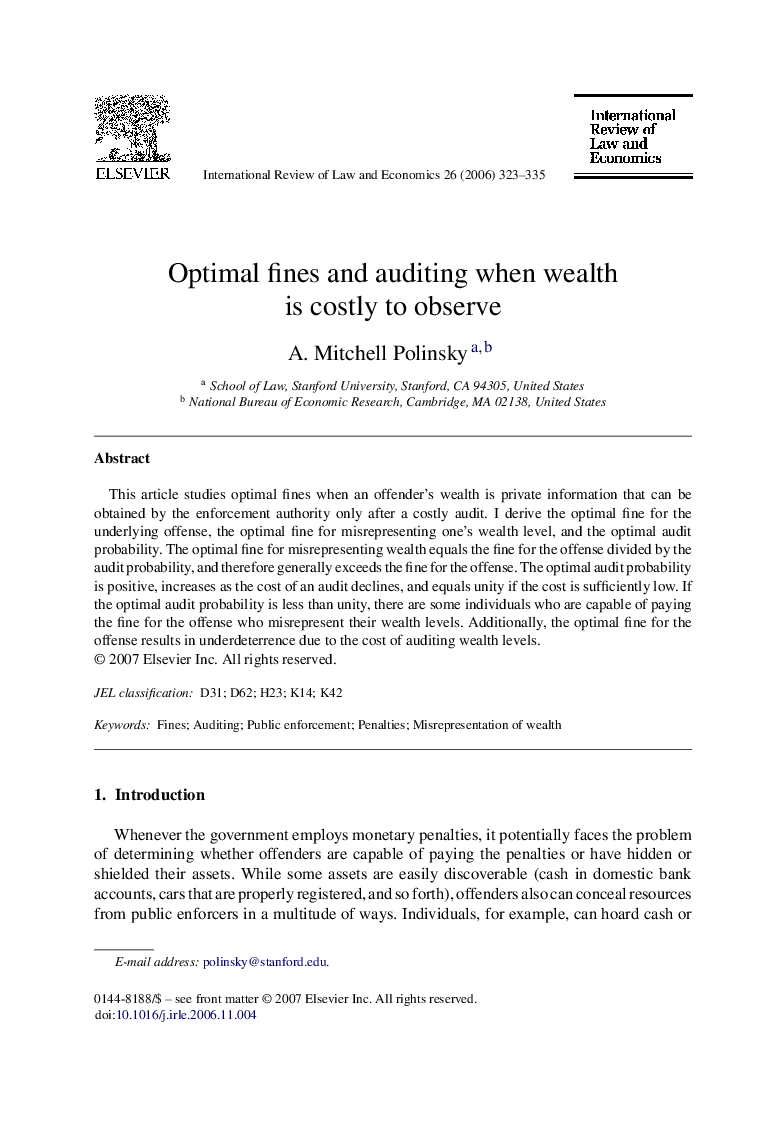| Article ID | Journal | Published Year | Pages | File Type |
|---|---|---|---|---|
| 5085939 | International Review of Law and Economics | 2006 | 13 Pages |
This article studies optimal fines when an offender's wealth is private information that can be obtained by the enforcement authority only after a costly audit. I derive the optimal fine for the underlying offense, the optimal fine for misrepresenting one's wealth level, and the optimal audit probability. The optimal fine for misrepresenting wealth equals the fine for the offense divided by the audit probability, and therefore generally exceeds the fine for the offense. The optimal audit probability is positive, increases as the cost of an audit declines, and equals unity if the cost is sufficiently low. If the optimal audit probability is less than unity, there are some individuals who are capable of paying the fine for the offense who misrepresent their wealth levels. Additionally, the optimal fine for the offense results in underdeterrence due to the cost of auditing wealth levels.
